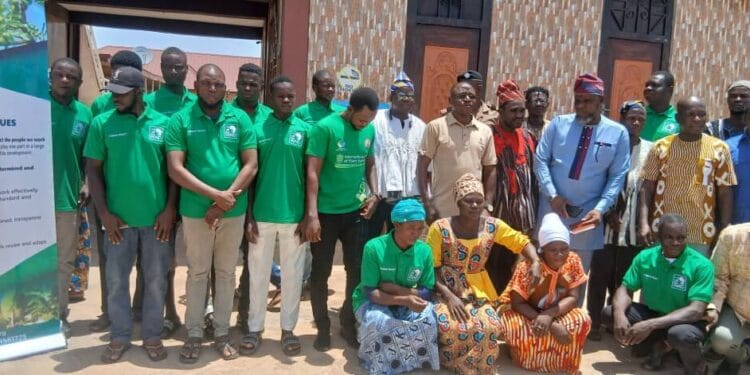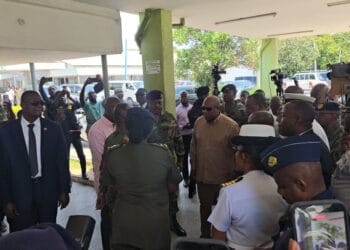Tree Aid Ghana has begun implementing a major carbon restoration initiative, “Tiisi Tenga” (Land of Trees), in the North-East Region, also covering parts of the Upper East Region, aimed at restoring degraded landscapes and boosting community resilience to climate change.
The project targets approximately 200,000 hectares of degraded land across 20 communities, primarily along the White Volta River, with an expected carbon sequestration of about 3.4 tonnes per hectare.
Follow The Ghanaian Standard channel on WhatsApp for the latest news stories from Ghana.
Its main objective is to guide farmers in adopting agroforestry systems that restore farmlands while balancing conservation with social benefits, enhancing climate resilience, and strengthening food security.
Mr Robert Atawura, Country Programmes Manager for Tree Aid Ghana, said the first phase is currently being implemented in four communities, Kurugu, Kparikpiri, Kpatusi, and Gbeo in the West Mamprusi Municipality. The initiative has already planted around 370,000 trees, including cassia, mahogany, teak, mango, cashew, and shea, across 1,000 hectares of communal and private land.
Communities are engaged in activities such as agroforestry, tree planting, protection, and nurturing seedlings to ensure high survival rates, targeting 3,200 hectares in total. During the dry season, interventions include tree irrigation, fire belt creation, and the establishment of tree protection groups to safeguard the plantations from fire and livestock.
Mr Atawura emphasised that chiefs, landowners, and families have been involved from the outset, given the long-term nature of the project, which requires commitment to land use and tree protection for at least 40 years, with an estimated carbon sequestration of 3.5 metric tonnes per hectare over the period.
He noted that ensuring communities benefit directly from carbon sequestration is central to encouraging long-term environmental stewardship.
The project also conducted community validation workshops to review social biodiversity impact assessments and confirm that activities reflect community priorities. Draft legal agreements were presented for community review to ensure mutual satisfaction and lay the foundation for sustainable collaboration.
Plans are underway to expand the initiative to additional communities in subsequent years, incorporating lessons learned from the first phase.
Mr Peter Claver Anyeember, Head of Department of Agriculture, West Mamprusi Municipality, praised the project for targeting communities heavily impacted by climate change, noting that restored lands and forests would enhance agricultural production.
Mr Alhassan Mohammed, Assemblyman for Kurugu Electoral Area, highlighted the project’s potential to improve income through carbon benefits, mitigate excessive heat, improve rainfall patterns, and boost crop yields, urging full community participation to ensure its success.















